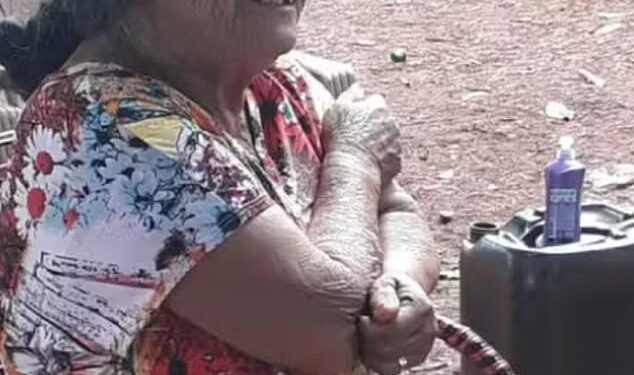An 81-year-old woman named Daniela Vera from Aral Moreira, Brazil, has tragically passed away following surgery to remove a 56-year-old lithopedion—a calcified fetus—from her abdomen. Daniela had carried the fetus unknowingly since her youth, with doctors disregarding her complaints of stomach pain over the years.
According to reports from NDTV, on March 10th, Vera sought treatment for a urinary tract infection at a local health center. She was subsequently referred to another hospital, where 3D scans revealed the presence of the lithopedion. These scans were conducted after she was transferred to Ponta Pora Regional Hospital in Mato Grosso do Sul due to a generalized infection contracted from a previous hospital visit closer to her home for urinary infection treatment.
Lithopedion, derived from Greek words meaning ‘stone’ and ‘child,’ occurs when an abdominal ectopic pregnancy becomes calcified around the fetus. Despite having seven children, Daniela was unaware of the calcified fetus until the scans revealed it. Following surgery, Daniela was moved to intensive care, where she passed away on March 15th due to complications from an infection.
Before the lithopedion discovery, medical experts had suspected cancer. However, they later determined that Daniela had carried the deceased fetus in her body since her last pregnancy over five decades ago. Dr. Patrick Dezir, head of the Ponta Pora Hospital health department, explained that in some cases, pregnancy can occur outside the uterus, leading to conditions like lithopedion.
Vera’s daughter, Rosely Almedia, mentioned that her mother, being indigenous and elderly, avoided doctors due to fear of medical equipment. Daniela had complained of abdominal pain since her first pregnancy as a teenager. Rosely added that her mother described sensations akin to a moving baby in her belly and occasional sickness, but they never suspected it was a lithopedion.
A similar case occurred in Colombia in 2013 when an 82-year-old woman had a stone baby in her belly for 40 years until surgery removed it. Lithopedion is exceptionally rare, occurring in only 0.0054% of pregnancies.
























